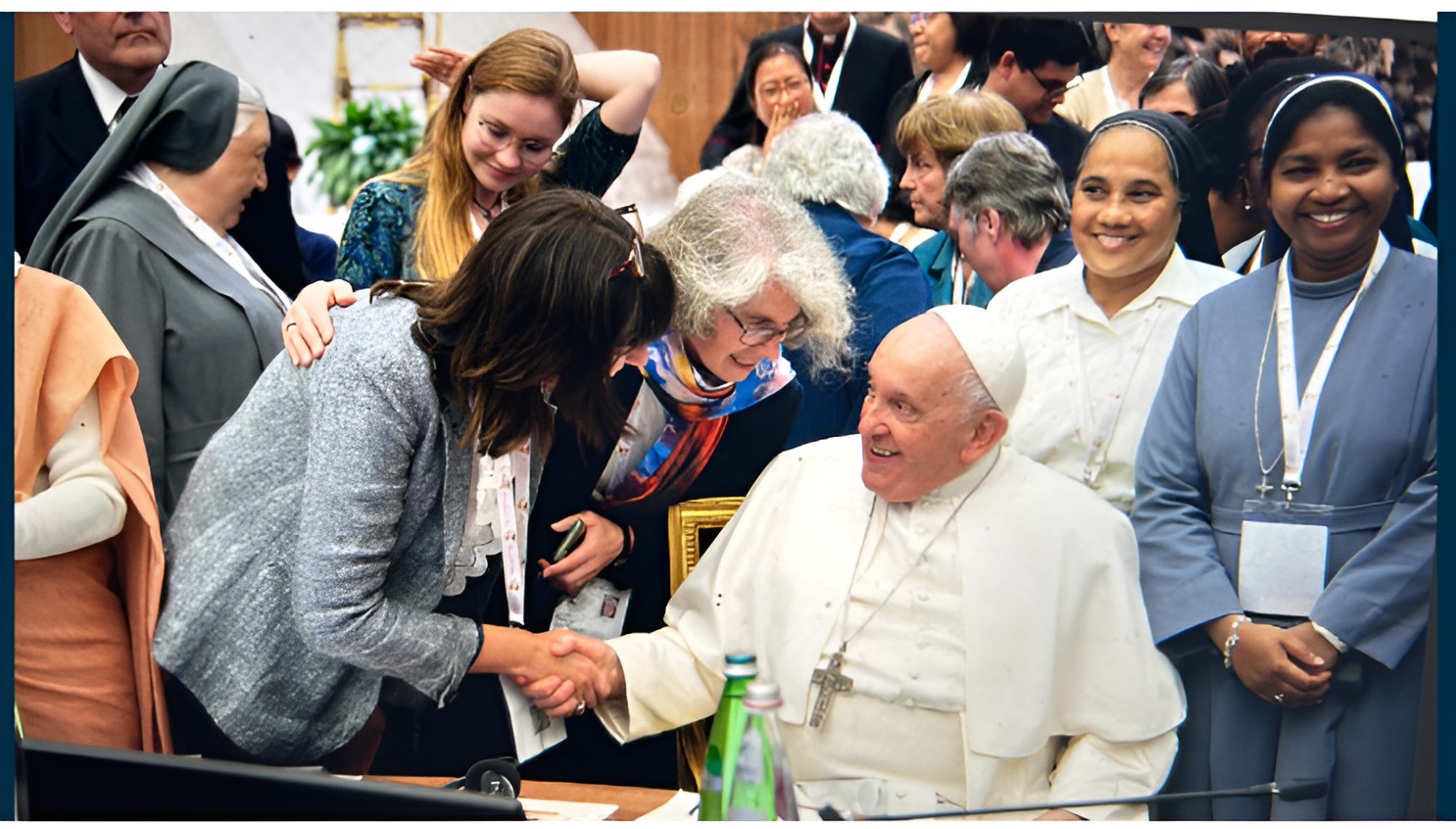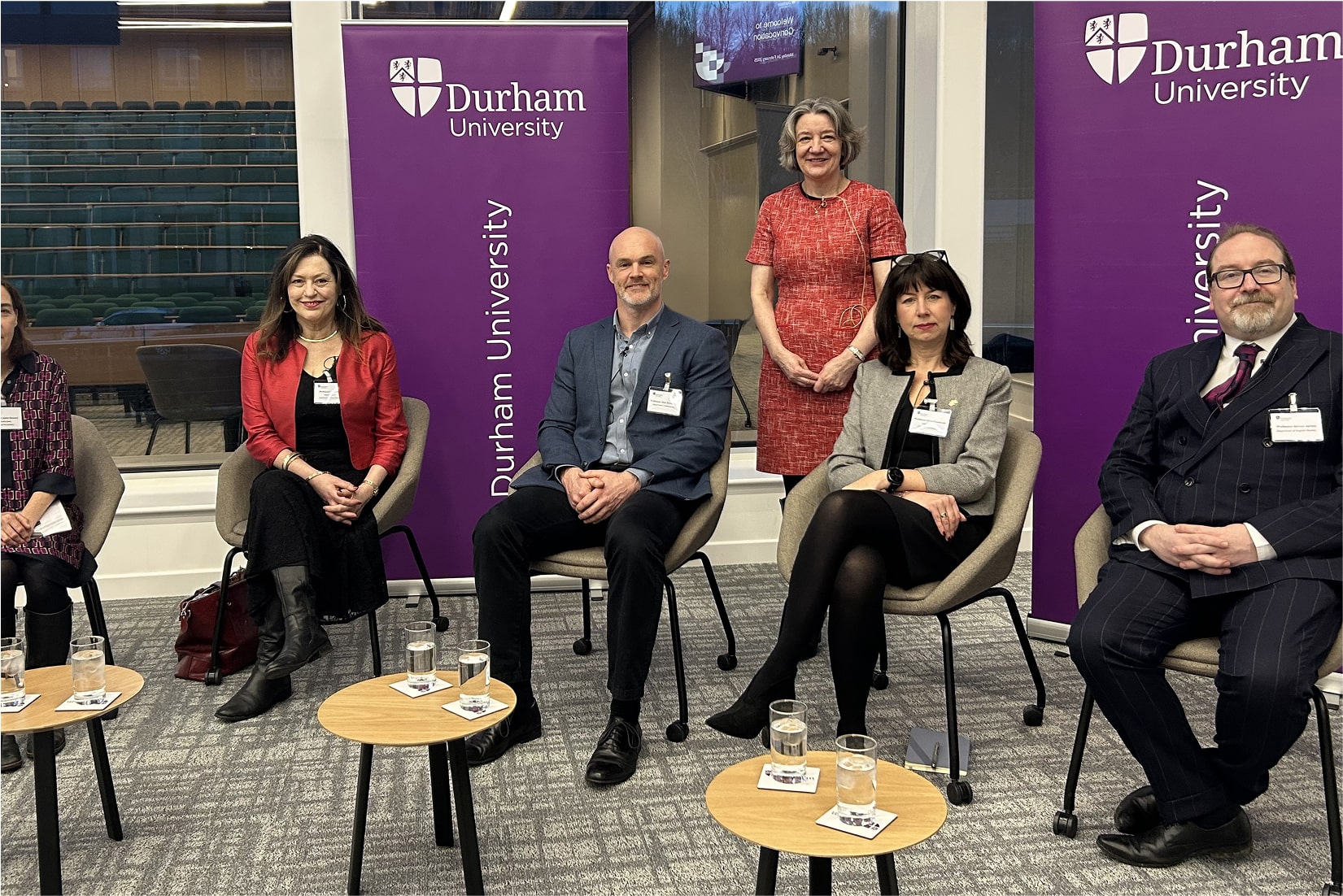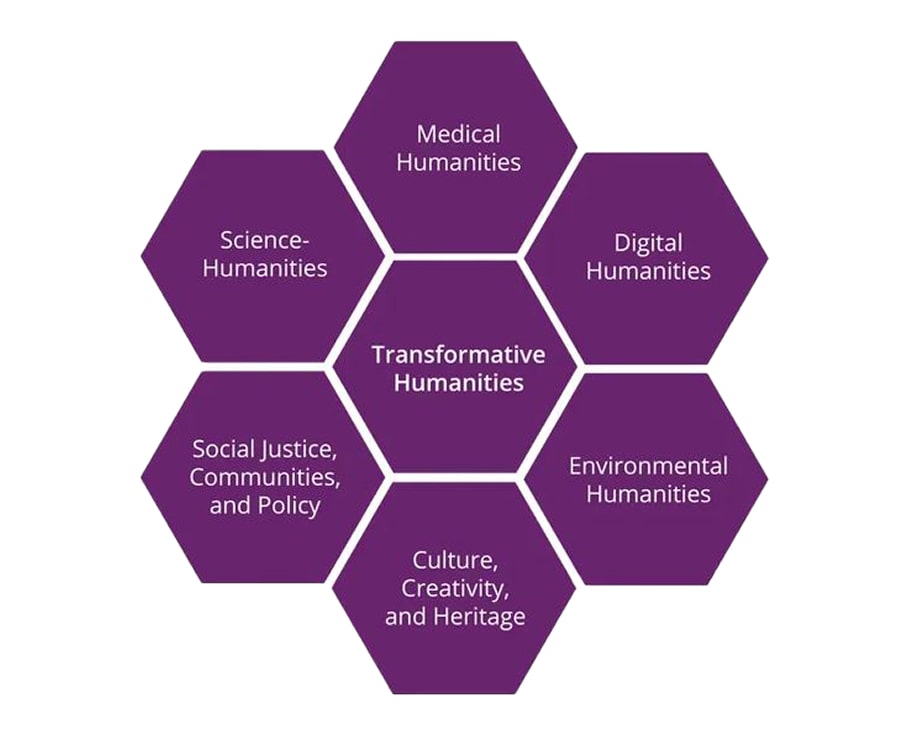
Harnessing the power of Arts and Humanities to transform lives
Academics at Durham are using their expertise in humanities to transform the world around them. At our recent meeting of Convocation, Professor Janet Stewart led a panel discussion between some of our eminent academics, who shared examples of the positive impact their work can have in informing real world challenges.
Professor Edith Hall – transforming opportunities with Classics
Professor Edith Hall from our Department of Classics and Ancient History is passionate about the lessons we can learn from ancient civilisations and is leading a campaign to put Classics education back on the UK curriculum. Edith seeks to align her study of ancient civilisations to modern-day issues, and her research has taken several directions by exploring issues such as gender, ethnicity, and social class through the lens of ancient literature. Edith’s latest project is a collaboration with the prison service and a prison education charity Novus. She is teaching ancient Greek philosophy and ethics to explore how we should act as individuals and societies in prisons. Starting with County Durham, she has designed a course for Novus to trial in a prison and it is now planned to be used more widely in other prisons. Her premise is based on the Aristotelian principle that if you try to be a good person, you will be happier. Her research, her publications and public engagement put urgent contemporary issues at the centre of the radar, using ancient Greek and Roman culture to sharpen modern thinking on ethnicity, gender, social class, mental health and the environment.

This was the most inspiring teaching I have ever done in my life. There is a palpable, quantitative difference in self-confidence and poise. None had ever asked these men if they thought that being good would make them happier.”
- Professor Edith Hall
Transformative Humanities brings together distinctive approaches to humanities research and education within the academy and across a wide range of partners and communities. It is an approach designed to enrich, shape and change lives. Transformative Humanities links together all research and related activities, and research-led learning. It engages with all of our learning and research communities, from undergraduates to professional services, postgraduates to academics and provides a thinking space for sustainable research. Transformative Humanities draws across chronologies, from ancient and medieval worlds to contemporary questions and future directions.
Inflected across and between disciplines, it focuses on six thematic areas:

This framework celebrates the value of the arts and humanities and the insights and impact of our work, through many avenues of outreach, engagement, knowledge exchange, and widening participation, involving all our learning and research communities.”
- Professor Janet Stewart, Executive Dean, Faculty of Arts and Humanities
Professor Anna Rowlands – transforming political challenges with Theology
Professor Rowlands is a leading political theologian who works at the interface of political and social theory and Christian Theology. Since March 2023, she has been helping to shape the future of the Catholic Church on a prestigious two-year secondment to the Vatican. We recently heard the sad news of the passing of Pope Francis. During his papacy, Professor Anna Rowlands was among researchers from our Department of Theology and Religion who followed his work closely and participated in his initiatives to help shape the future of the Catholic Church. Anna has been actively working with the team managing the global Synod process established by the late Pope. The Synod is the largest grassroots listening process ever undertaken by the Catholic Church and aims to renew processes of participation, governance and mission in the life of the Church. Anna believes that there are real benefits of a collaborative interdisciplinary approach, not only in adding a different dimension to an existing challenge, but also to the scholar. She believes that broadening perspective increases depth of insight and improves the quality of the questions asked.
Talking Humanities
The Talking Humanities series of podcasts features insights into collaborative projects working across the University and beyond – changing the ways in which we think and work. The first episode features Professor Giles Glasper, professor in High Medieval History specialising in the intellectual history of the high middle ages and particularly in the development of theology and Deputy Executive Dean of Research, Faculty of Arts and Humanities. Joining him in the episode is Professor Brian Tanner, an Emeritus professor in the Department of Physics. They are both members of the interdisciplinary Ordered Universe project which studies the scientific works of the 13th century polymath, Robert Grosseteste. They talk about how they met through the Ordered Universe and how their work in humanities and the sciences became intertwined. They discuss the unexpected discoveries and co-authored publications which came from the project, engaging with artists and young people as well as offering advice on setting up large-scale research projects. The series highlights the transformative strength of Arts and Humanities and hopes to inspire further reflection and activity. In each of the seven episodes, a leading academic from the Faculty discusses an area of particular interest, often collaborating with an expert from another of our Faculties. The discussions illustrate how an interdisciplinary approach can add extra context and dimension to any of the projects.
My collaboration with the Vatican has been to support a global listening process to understand the aspirations of grassroots Catholics around power, participation and belonging in a truly global Catholic community. My job has been to think about how we could interpret the data we were getting from the grassroots and present it to the world theologically.”
- Professor Anna Rowlands
This perspective on the Humanities amplifies Durham University’s long-standing research excellence in this area and brings the insights of humanities to bear on disciplines in Science, Business, and Social Science. It also addresses the needs of our communities and the challenges of the higher education sector.”
- Professor Karen O’Brien